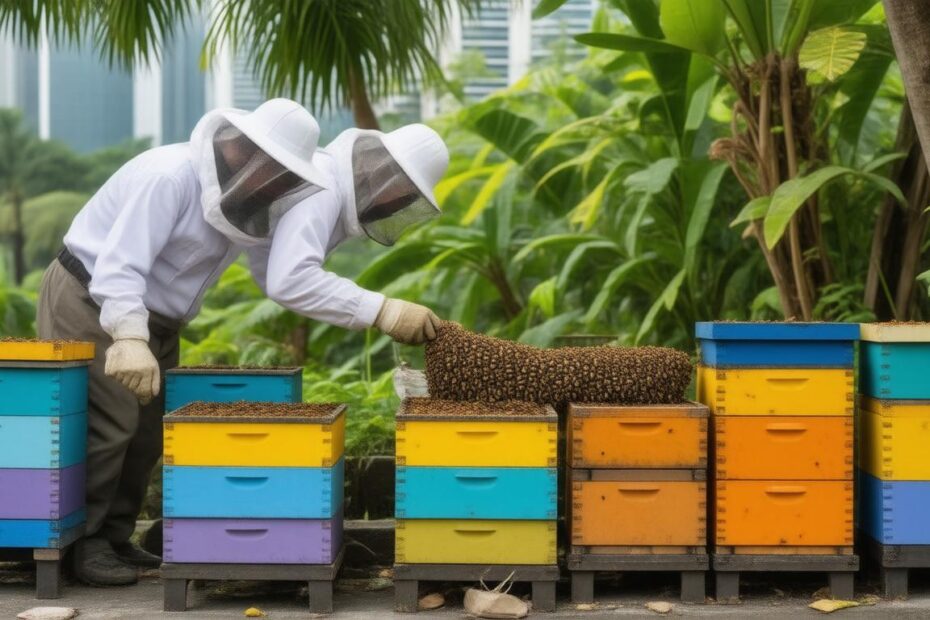Hives, while often associated with stubborn itchiness and rash, can also represent the fascinating world of urban beekeeping that is emerging in Singapore. The term "hives" carries dual meaning; on one hand, it refers to a skin condition known medically as Urticaria, and on the other, it evokes images of beehives teeming with activity. This article aims to shed light on both aspects, particularly focusing on the increasingly popular practice of urban beekeeping in Singapore, its significance, and its benefits.
Understanding Urticaria (Hives)
Urticaria, commonly referred to as hives, is a prevalent skin condition characterized by raised, itchy welts that can appear anywhere on the body. These rashes are caused by the body’s immune system reacting to foreign substances, leading to the release of histamine. There are several forms of Urticaria, including:
- Acute Urticaria: This type usually resolves within six weeks and is often triggered by allergens such as food, insect stings, or medications.
- Chronic Urticaria: Defined by recurring episodes lasting beyond six weeks, chronic hives can be particularly distressing and may require medical intervention.
- Urticaria Vasculitis: A rare form marked by more prolonged and painful symptoms that last longer than 24 hours.
In Singapore, the occurrence of hives can be attributed to various environmental factors, including climate and lifestyle, thus making awareness and treatment crucial for afflicted individuals.
Causes and Symptoms of Urticaria
Common triggers include:
- Allergens: Foods (nuts, seafood, dairy), drugs (penicillin, NSAIDs), and insect bites.
- Environmental Factors: Changes in temperature, pressure on the skin, stress, and certain chemicals.
Symptoms typically manifest as red, raised welts that can vary in size and shape, often accompanied by intense itching. For some, the discomfort is compounded by anxiety regarding the visibility of these outbreaks in social scenarios.
Treatment
In Singapore, treatments are readily available, ranging from antihistamines to corticosteroids for severe cases. Practices such as keeping a food diary can help identify triggers, while lifestyle alterations—like managing stress and avoiding identified allergens—contribute to control over this distressing condition.
Urban Beekeeping: The Sweet Side of Hives
Contrasting the unfortunate reality of hives as a skin condition is the growing movement towards urban beekeeping in Singapore. 
Benefits of Urban Beekeeping
-
Pollination: Bees play a pivotal role in pollinating plants, which is vital for food production. Urban gardens thrive, and the overall greenery and biodiversity in city areas benefit from hives.
-
Local Honey Production: Urban beekeeping provides fresh, locally produced honey that is free from pesticides and supports sustainable practices.
-
Education and Community Engagement: Beekeeping fosters a greater understanding of the environment and can cultivate community spirit as individuals come together to learn about and manage hives.
-
Environmental Awareness: Through beekeeping, individuals gain invaluable insights into sustainability, food systems, and the importance of bees in our ecosystem.
Getting Started with Urban Beekeeping
If you’re interested in starting your own hive in Singapore, consider the following steps:
- Research Local Regulations: Be sure to check Singapore’s regulations regarding urban beekeeping, as some areas may have restrictions.
- Join Beekeeping Groups: Many communities offer workshops and resources for new beekeepers.
- Choose the Right Location: Hives should be placed in a safe, sunny area, away from heavy traffic and disturbances.
Conclusion
The term "hives" in Singapore creatively illustrates two contrasting realities—one rooted in skin health and the other in the joys of urban beekeeping. By understanding the medical implications of Urticaria and embracing the benefits of bee cultivation, individuals can cultivate greater awareness about health and the environment. Whether navigating the challenges of hives as a skin condition or fostering the delightful presence of bees, both avenues enrich the fabric of community living in vibrant Singapore.
